Are you a proud owner of a Hemet Shiba Inu and want to ensure they’re receiving the best nutrition possible? Look no further! In this comprehensive guide, we unveil the optimal feeding schedule for Hemet Shiba Inus. From portion sizes to meal times, we cover everything you need to know to keep your furry friend healthy and happy. By following our expert recommendations, you can rest assured that your Shiba Inu is getting the balanced diet they need to thrive. Say goodbye to guesswork and hello to a well-fed, content pup with our feeding schedule guide.
Understanding the Nutritional Needs of Hemet Shiba Inus
When it comes to the nutritional needs of Hemet Shiba Inus, it is essential to delve into the specific dietary requirements that cater to this breed’s unique characteristics. Shiba Inus are known for their lively and active nature, and as such, they require a diet that supports their energy levels and overall health. Understanding these nutritional needs can pave the way for designing an optimal feeding schedule that ensures their well-being.
Exploring the Dietary Requirements Unique to Shiba Inus
-
High-Quality Protein Sources: Shiba Inus benefit greatly from a diet rich in high-quality proteins such as lean meats, fish, and poultry. Protein is crucial for muscle development, tissue repair, and overall growth in these active dogs.
-
Moderate Fat Content: While Shiba Inus are energetic, they do not require excessively high levels of fat in their diet. Opt for moderate amounts of healthy fats to support their skin health and coat shine without leading to unwanted weight gain.
-
Complex Carbohydrates: Incorporating complex carbohydrates like whole grains and vegetables provides Shiba Inus with a sustainable source of energy. These carbs aid in maintaining steady blood sugar levels and support their active lifestyle.
Importance of Balanced Nutrition for Overall Health and Well-being
Ensuring that Hemet Shiba Inus receive a balanced and nutritious diet is paramount for their overall health and well-being. A well-rounded diet not only supports their physical health but also contributes to their mental alertness and emotional stability. By meeting their specific nutritional needs, Shiba Inus can thrive and lead a vibrant life full of vitality.
Establishing a Consistent Feeding Routine
Morning Feeding
-
Recommended portion sizes for breakfast
Hemet Shiba Inus require a balanced diet to support their energy levels and overall health. For breakfast, it is recommended to provide approximately 1/3 to 1/2 cup of high-quality dry dog food. This portion size may vary depending on the age, weight, and activity level of the individual Shiba Inu. Consult with your veterinarian to determine the most suitable portion size for your pet. -
Ideal time for morning feeding sessions
The ideal time for morning feeding sessions for Hemet Shiba Inus is typically between 7:00 am and 8:00 am. Establishing a consistent feeding routine helps regulate your pet’s metabolism and digestion. It is important to avoid feeding your Shiba Inu too early in the morning, as this can lead to digestive issues. By feeding them at a consistent time each morning, you can create a sense of routine and predictability for your pet, contributing to their overall well-being.
Afternoon Feeding
Providing a nutritious midday meal for your Hemet Shiba Inu is crucial in maintaining their overall health and well-being. This afternoon feeding session serves as a vital component of their daily nutrition and energy requirements. Ensuring that the meal is balanced and tailored to meet the specific dietary needs of your Shiba Inu is essential for optimal health outcomes. Consider the following factors when scheduling the afternoon feeding:
-
Nutrient Balance: Ensure that the afternoon meal provides a balanced mix of proteins, carbohydrates, fats, vitamins, and minerals to support your Shiba Inu’s overall health and vitality.
-
Energy Levels: Take into account your Shiba Inu’s activity level throughout the day when determining the portion size and calorie content of the afternoon meal. Adjust the feeding schedule accordingly to provide the necessary energy for their daily activities.
-
Digestive Health: Consider the timing of the afternoon feeding in relation to your Shiba Inu’s digestion. Allow for adequate time between meals to prevent digestive issues and promote optimal nutrient absorption.
-
Hydration: Remember to provide access to fresh water throughout the day, especially after the afternoon meal, to keep your Shiba Inu hydrated and support their overall well-being.
-
Special Dietary Needs: If your Shiba Inu has any specific dietary requirements or restrictions, such as food allergies or sensitivities, ensure that the afternoon meal aligns with these needs to prevent any adverse reactions or health issues.
Evening Feeding
- Hemet Shiba Inus require a carefully planned evening feeding routine to ensure their nutritional needs are met adequately. It is crucial to consider the dinner portion guidelines to provide a satisfying meal that supports their overall health and well-being.
- The timing of the last meal of the day is equally important in maintaining a consistent feeding schedule for Hemet Shiba Inus. Ideally, the evening feeding should be done at least three to four hours before their bedtime to allow for proper digestion and prevent any discomfort during the night.
- Avoid feeding your Hemet Shiba Inu a large meal right before bedtime to reduce the risk of digestive issues or discomfort. Instead, opt for a moderate portion size that provides them with the necessary nutrients without overloading their system before they rest for the night.
Special Considerations for Puppies and Senior Hemet Shiba Inus
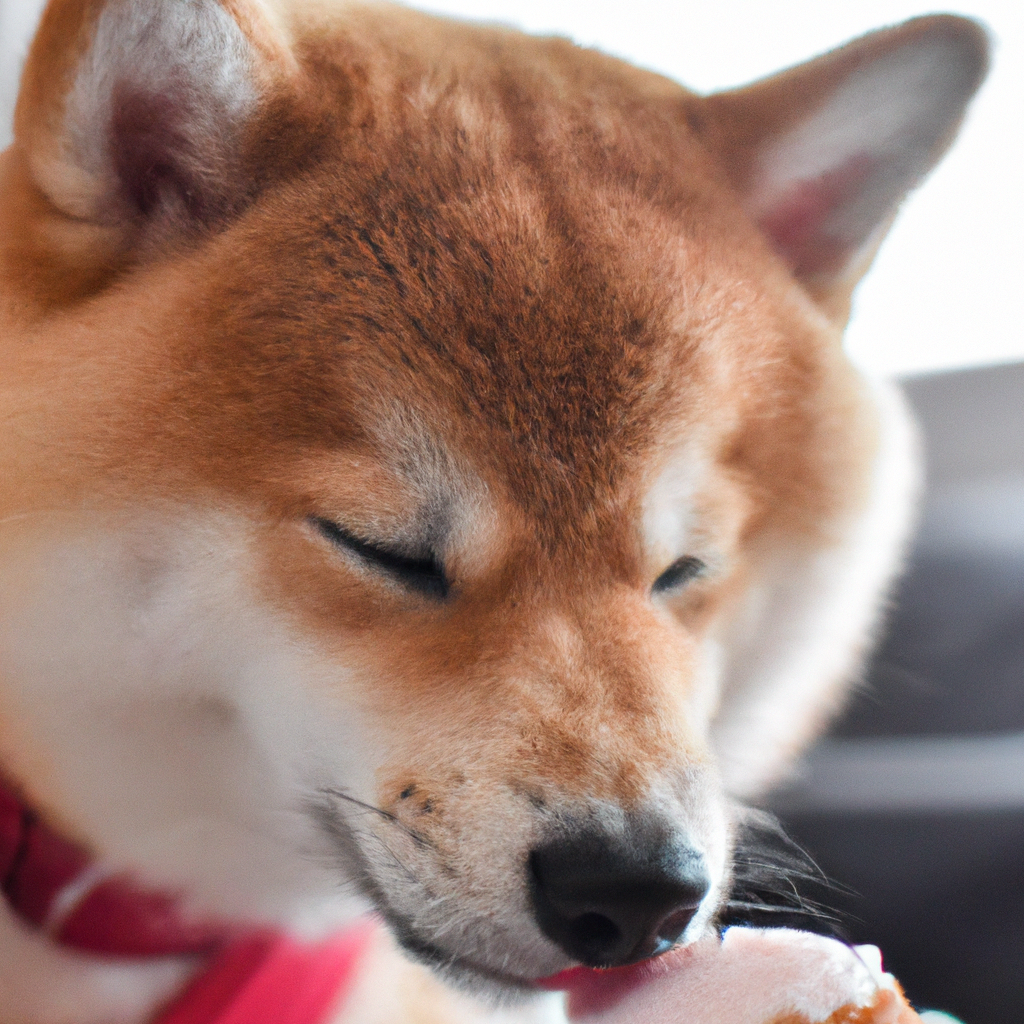
Feeding Schedule for Hemet Shiba Inu Puppies
When it comes to feeding Hemet Shiba Inu puppies, a specialized approach is essential to support their growth and development adequately. Here are key considerations for establishing an optimal feeding schedule for these young dogs:
-
Frequency of Meals: Hemet Shiba Inu puppies should ideally be fed three to four times a day to meet their high energy requirements and promote steady growth. This frequent feeding schedule helps prevent hypoglycemia and provides a consistent source of nutrients for their active bodies.
-
Quantity of Meals: The quantity of each meal should be tailored to the individual puppy’s age, size, and activity level. It is crucial to consult with a veterinarian to determine the appropriate portion sizes to prevent overfeeding or underfeeding, which can impact the puppy’s health and development.
-
Nutritional Requirements: Puppies have specific nutritional needs that differ from adult dogs. A well-balanced diet rich in high-quality protein, essential fats, vitamins, and minerals is vital for supporting the growth of muscles, bones, and organs. Commercial puppy food formulated for small to medium breeds is often recommended, as it provides the necessary nutrients in appropriate ratios.
-
Meal Consistency: Maintaining a consistent feeding schedule and sticking to the same type of food can help prevent digestive upsets and establish healthy eating habits in Hemet Shiba Inu puppies. Sudden changes in diet or meal times should be avoided to promote gastrointestinal health and overall well-being.
By following these guidelines and monitoring the puppy’s growth and behavior closely, pet owners can ensure that their Hemet Shiba Inu puppies receive the nutrition they need to thrive and grow into healthy adult dogs.
Adjusting the Feeding Schedule for Senior Shiba Inus
As Hemet Shiba Inus age, their nutritional requirements undergo significant changes, necessitating adjustments to their feeding schedule. Here are key considerations when adapting the feeding regimen for senior Shiba Inus:
- Understanding the changing nutritional needs of aging dogs:
- Senior Shiba Inus typically experience a decrease in metabolism and activity levels, leading to a lower caloric requirement. Adjusting the feeding schedule to accommodate this reduced energy expenditure is crucial to prevent weight gain and related health issues.
-
Older dogs may also develop certain health conditions that require specific dietary modifications, such as kidney disease or arthritis. Consulting with a veterinarian to tailor the feeding schedule to address these issues is essential for maintaining the senior Shiba Inu’s overall well-being.
-
Tips for accommodating senior dietary preferences:
- As dogs age, their sense of taste and smell may diminish, affecting their appetite. Offering a variety of flavors and textures in their meals can help stimulate their interest in food and ensure they receive adequate nutrition.
- Senior Shiba Inus may benefit from smaller, more frequent meals throughout the day to aid digestion and prevent stomach discomfort. Dividing their daily food portion into several servings can also help manage blood sugar levels and energy levels more effectively.
By taking into account the changing nutritional needs and preferences of senior Shiba Inus, pet owners can create a feeding schedule that promotes their health and longevity.
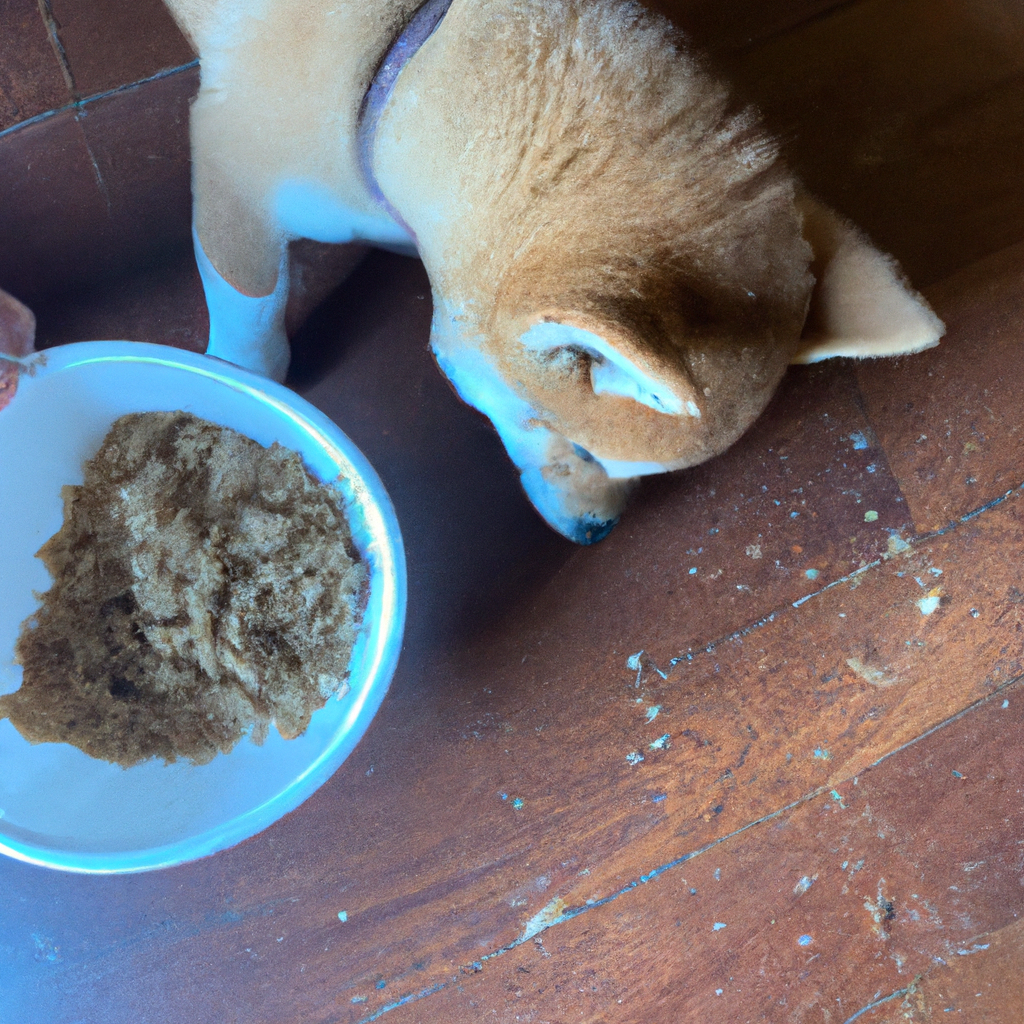
Implementing Treats and Snacks Effectively
When it comes to incorporating treats into a Hemet Shiba Inu’s diet, it is crucial to do so without disrupting the main feeding schedule. Treats should be considered as supplemental to the dog’s regular meals and should not account for more than 10% of their daily caloric intake. This ensures that the dog receives all the essential nutrients from their main meals while still enjoying the occasional treat.
Healthy snack options to complement the daily diet
Choosing healthy snack options is key to maintaining the overall health and well-being of a Hemet Shiba Inu. Opt for treats that are low in calories but high in nutritional value. Some excellent snack choices for Shiba Inus include:
– Carrot sticks: Crunchy and low in calories, carrots are a great source of vitamins and minerals.
– Blueberries: Packed with antioxidants and vitamins, blueberries make a tasty and healthy snack.
– Plain, air-popped popcorn: A low-calorie treat that can be a satisfying snack for your Shiba Inu.
– Cooked sweet potatoes: Rich in fiber and vitamins, sweet potatoes are a nutritious option for a snack.
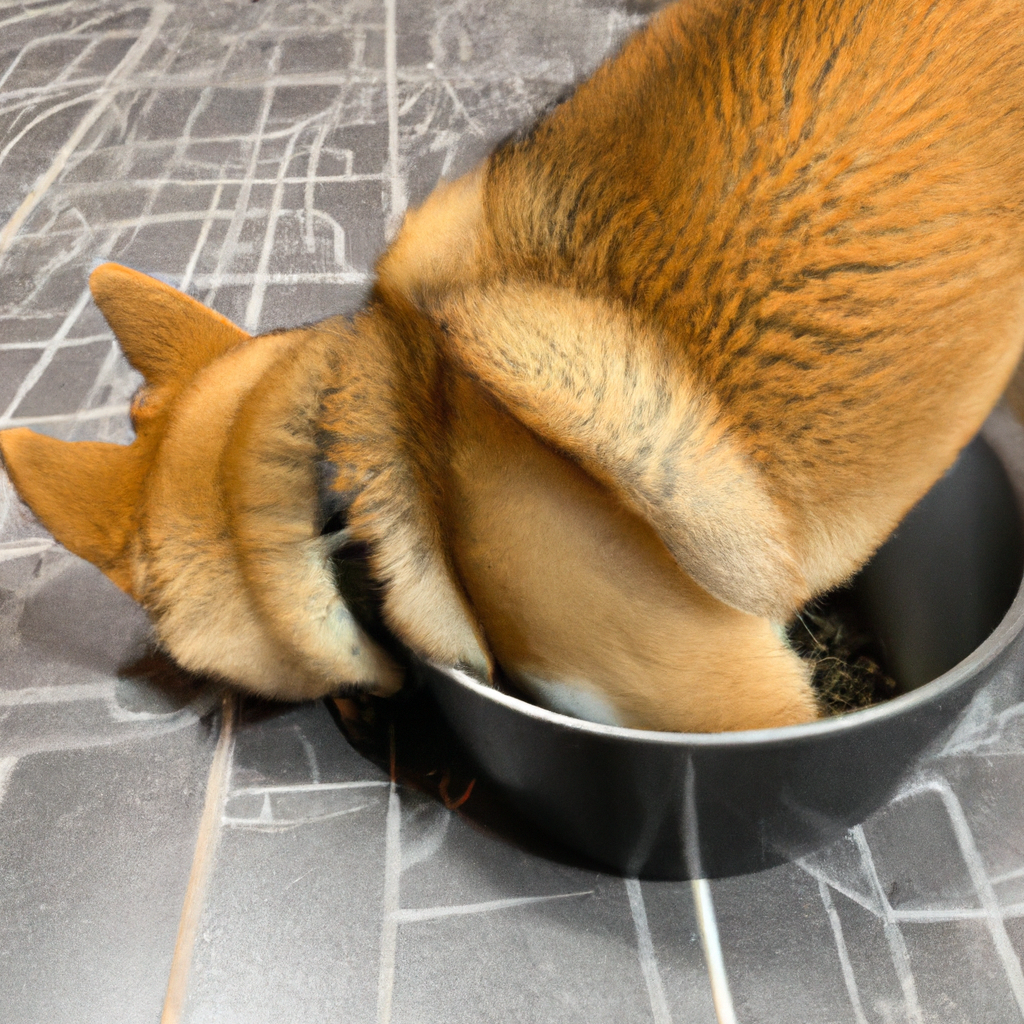
By incorporating these healthy snack options into your Hemet Shiba Inu’s diet, you can provide them with additional nutrients and variety without compromising their main feeding schedule. Remember to monitor the overall caloric intake to ensure that treats and snacks do not lead to overfeeding or weight gain.
Monitoring and Adjusting the Feeding Schedule
Signs of Overfeeding or Underfeeding
- Recognizing indicators of improper portion sizes
While ensuring your Hemet Shiba Inu receives adequate nutrition is crucial, overfeeding or underfeeding can lead to various health issues. Signs of overfeeding may include obesity, excessive weight gain, lethargy, and digestive problems. On the other hand, underfeeding can result in weight loss, malnutrition, reduced energy levels, and a dull coat. Monitoring your dog’s body condition and weight regularly can help you determine if the portion sizes are appropriate.
- Behavioral cues that may signal feeding schedule adjustments
Paying attention to your Hemet Shiba Inu’s behavior around meal times can offer valuable insights into whether they are being overfed or underfed. If your dog is constantly begging for food, raiding the trash for scraps, or displaying food guarding behavior, it might indicate that they are not getting enough to eat. Conversely, if your dog shows disinterest in food, picks at meals, or exhibits aggression around food, it could be a sign of overfeeding. Adapting the feeding schedule based on these behavioral cues can help maintain your dog’s optimal health and well-being.
Fine-Tuning the Feeding Routine
When it comes to fine-tuning the feeding routine of Hemet Shiba Inus, there are several strategies that can be employed to ensure their nutritional needs are met effectively. These dogs are known for their unique dietary requirements, and adjustments to their feeding schedule may be necessary based on various factors such as age, activity level, and overall health.
Strategies for adapting the feeding schedule as needed
-
Observation and Monitoring: It is crucial to closely observe your Hemet Shiba Inu’s eating habits and body condition regularly. By keeping a watchful eye on how they respond to their current feeding schedule, you can identify any signs that adjustments may be required.
-
Gradual Transition: If there is a need to change the timing or quantity of meals, it is essential to do so gradually. Abrupt changes can upset their digestive system and lead to gastrointestinal issues. Slowly transitioning to a new feeding schedule can help prevent any disruptions to their routine.
-
Response to Activity Levels: Hemet Shiba Inus are typically active and energetic dogs. Adjusting their feeding schedule to align with their activity levels can help ensure they have the necessary energy for their daily exercise and play. For example, feeding them a larger meal before a more active part of the day can provide the fuel they need to stay active and healthy.
Consulting with a veterinarian for personalized feeding recommendations
-
Individualized Assessment: Every Hemet Shiba Inu is unique, and their nutritional needs may vary. A veterinarian can conduct a thorough assessment of your dog’s health, lifestyle, and dietary requirements to provide personalized feeding recommendations. This tailored approach can help address any specific needs or concerns your dog may have.
-
Health Considerations: Certain health conditions or allergies may require modifications to the feeding schedule. A veterinarian can offer guidance on the best feeding routine to support your Hemet Shiba Inu’s overall health and well-being. By consulting with a professional, you can ensure that your dog’s feeding schedule is optimized to meet their specific needs.
FAQs: Hemet Shiba Inus Feeding Schedule
What is the ideal feeding schedule for Hemet Shiba Inus?
Hemet Shiba Inus thrive on a consistent feeding schedule that includes two meals a day. It is recommended to feed your Shiba Inu in the morning and evening, around the same time each day. This routine helps regulate their digestion and prevents overeating. It is important to note that the amount of food and frequency of meals may vary depending on your dog’s age, activity level, and overall health.
How much food should I give my Hemet Shiba Inu at each meal?
The amount of food you should give your Hemet Shiba Inu at each meal depends on their age, size, and activity level. It is generally recommended to feed adult Shiba Inus about 1 to 1.5 cups of high-quality dog food per day, divided into two meals. Puppies and senior dogs may require more frequent meals and smaller portions. Consult with your veterinarian to determine the appropriate portion size for your specific Shiba Inu.
What type of food is best for my Hemet Shiba Inu?
A high-quality, balanced diet is essential for the health and well-being of your Hemet Shiba Inu. Look for dog foods that list meat as the first ingredient, are free of artificial additives, and meet the nutritional needs of your specific dog. Some Shiba Inus may benefit from a grain-free or limited ingredient diet, while others may do well on a traditional kibble. It is important to monitor your dog’s weight and overall condition and make adjustments to their diet as needed.
Can I give my Hemet Shiba Inu treats in between meals?
Treats can be a fun way to reward your Hemet Shiba Inu for good behavior or to provide enrichment. However, it is important to limit the number of treats and ensure they are high-quality and nutritionally balanced. Treats should not make up more than 10% of your dog’s daily caloric intake to avoid overfeeding and weight gain. Choose treats that are appropriate for your Shiba Inu’s size and dietary needs, and always consult with your veterinarian before introducing new treats into their diet.
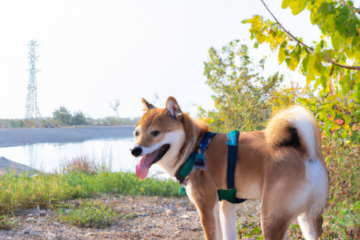

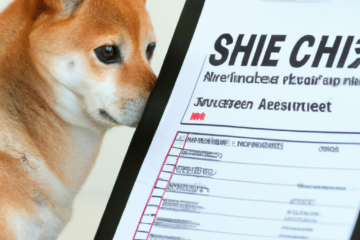
0 Comments